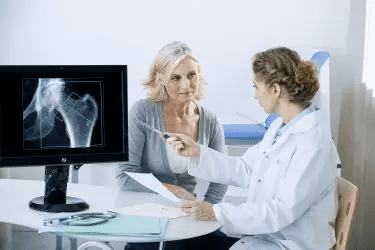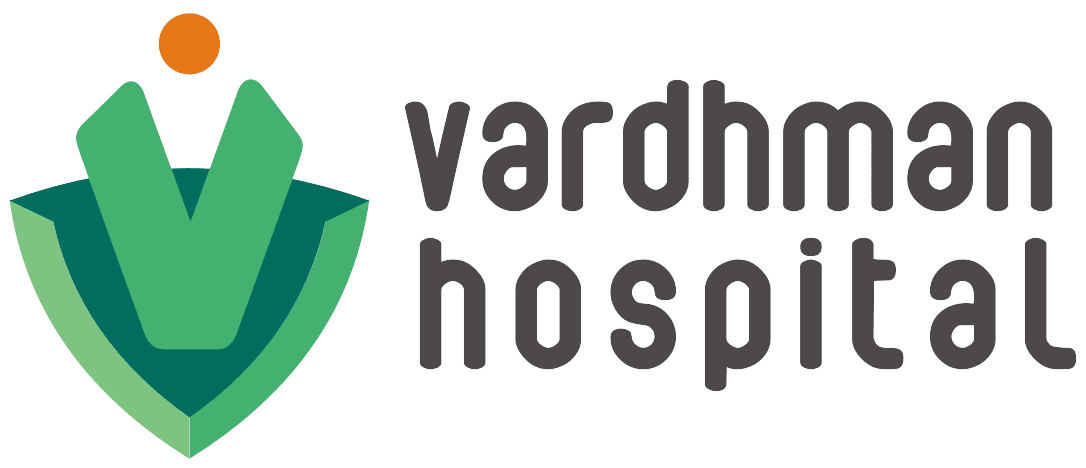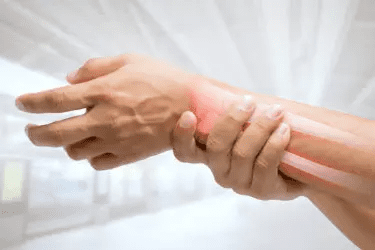

DEXA Scan - Bone Densitometry
Bone Mineral Density (BMD) scanning, also called dual-energy x-ray absorptiometry (DEXA) or bone densitometry, is an enhanced form of x-ray technology that is used to measure bone density. At Vardhman Hospital in Muzaffarnagar, we have the most advanced Narrow-Angle Fan Beam Technology based DEXA which takes just 6 minutes in doing Whole Body BMD.
Conventional DEXA which uses the older pencil beam technology is installed at most of the hospitals and diagnostic centres in India. Those machines take more than 45 minutes for the whole body scanning thereby giving 6 times more radiation dose to the patient. The Bone Mineral Density machine at Vardhman Hospital comes with an exclusive feature of Body Mass Fat Analysis.
DEXA is today's established standard for measuring bone mineral density (BMD). DEXA is most often used to diagnose osteoporosis, a condition that often affects women after menopause but may also be found in men. Osteoporosis involves a gradual loss of calcium, as well as structural changes, causing the bones to become thinner, more fragile, and more prone to fracture. A recent study done in the UK suggested that 90% of Indians are deficient in Vitamin-D. Now every patient is getting tested for Vitamin-D and most of the people are found to have low Vitamin-D Levels. All such patients need to undergo Serum Calcium Testing and also Bone Mineral Density. The Vitamin-D supplements should be taken only after the test results of Vitamin-D, Calcium and BMD confirm low bone mineral density.
Types of BMD
At Vardhman Hospital Muzaffarnagar, Uttar Pradesh we regularly perform Bone Densitometry Scans.
- Whole Body DEXA Scan
- Single Site - Femur, Hip or Spine
- Any Two / Three Sites
- Whole Body Fat Composition Analysis
Patient Preparation
No Preparation Required. Inform the technician if you are pregnant. Kindly take prior appointment by calling on +919219416543
The BMD Machine at Vardhman Hospital is the fastest BMD in the city of Muzaffarnagar. Whole Body DEXA Scan will take only 6 minutes thereby reducing the radiation dose by almost 66% as compared to other machines.
We at Vardhman Hospital Muzaffarnagar, Uttar Pradesh recommend that you have a bone density test if:
- you are a woman age 45 or older.
- you are a man age 50 or older.
- you break a bone after age 50.
- you are a woman of menopausal age with risk factors.
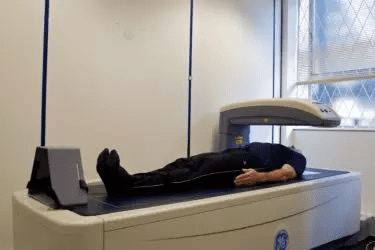

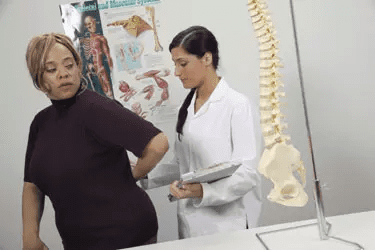

Types of BMD Tests
Central DXA: We recommend that a bone density test of the hip and spine should be done using a central DXA machine to diagnose osteoporosis.
Healthcare providers measure bone density in the hip and spine for several reasons. First, people with osteoporosis have a greater chance of fracturing these bones. Second, broken bones in the hip and spine can cause more serious problems, including longer recovery time, greater pain, and even disability. Bone density in the hip and spine can also predict the likelihood of future breaks in other bones.
With most types of bone density tests, a person remains fully dressed. The test at Vardhman Hospital would take 6 minutes while at the other centers the test can take up to 40 minutes. Bone density tests are non-invasive and painless. This means that no needles or instruments are placed through the skin or body.
When repeating a bone density test, it is best to use the same testing equipment and have the test done at the same place each time. This provides a more accurate comparison with your last test result. Although it is not always possible to have your bone density test at the same place, it is still important to compare your current bone density scores to your previous scores. Standard x-rays cannot be used in place of bone density tests. Unlike bone density tests, X-rays are not able to show osteoporosis until the disease is well advanced.
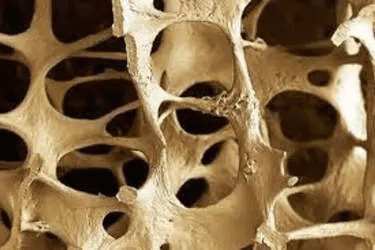

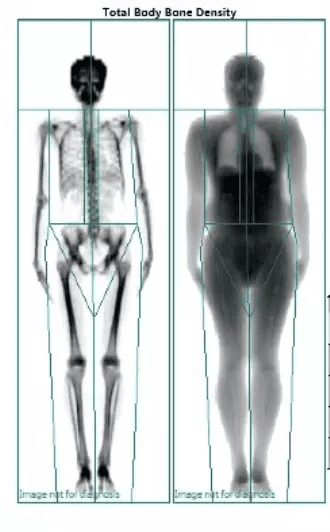

Results of BMD Tests
A bone density test tells you if you have normal bone density, low bone density (osteopenia) or osteoporosis. It is the only test that can diagnose osteoporosis. The lower your bone density, the greater your risk of breaking a bone. A bone density test can help you and your healthcare provider:
- Learn if you have weak bones or osteoporosis before you break a bone.
- Predict your chance of breaking a bone in the future.
- See if your bone density is improving, getting worse or staying the same.
- Find out how well osteoporosis medicine is working.
- Let you know if you have osteoporosis after you break a bone.
- A bone density test may also be necessary if you have any of the following:
- Back pain with a possible break in your spine.
- Height loss of ½ inch or more within one year.
- Total height loss of 1½ inches from your original height.
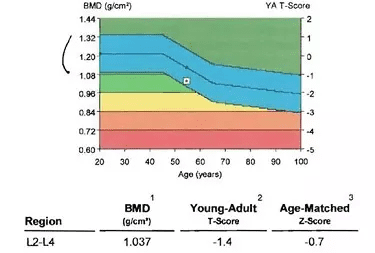

Where To Do The Test
After starting a new osteoporosis medicine, many healthcare providers will repeat a bone density test after one year. Understanding Bone Density Test Results in Your bone density test results are reported using T-scores.
A T-score shows how much your bone density is higher or lower than the bone density of a healthy 30-year old adult. A healthcare provider looks at the lowest T-score to diagnosis osteoporosis.
What Your T-score Means. According to the World Health Organization (WHO):
A T-score of -1.0 or above is normal bone density. Examples are 0.9, 0 and -0.9.
A T-score between -1.0 and -2.5 means you have low bone density or osteopenia. Examples are T-scores of -1.1, -1.6 and -2.4. A T-score of -2.5 or below is a diagnosis of osteoporosis. Examples are T-scores of -2.6, -3.3 and -3.9.
The lower a person’s T-score, the lower the bone density. A T-score of -1.0 is lower than a T-score of 0.5 and a T-score of -3.5 is lower than a T-score of -3.0.
If you have a peripheral bone density test, you should follow up with your healthcare provider. Discuss whether you need additional testing, such as a central DXA test of the hip and/or spine.
